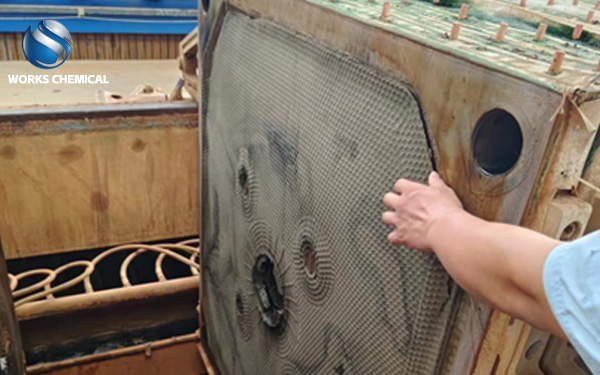
The selection of municipal sludge conditioning agents is a comprehensive process that requires consideration of a number of factors to ensure the efficiency and economy of sludge treatment. Here are some key points to choose from:

First, understand the properties of sludge
Sludge type: Municipal sludge may contain domestic sewage sludge, industrial wastewater sludge and other types, and their composition and properties are different.
Sludge moisture content: The moisture content of the sludge directly affects the dehydration effect and the type and dosage of the required conditioner.
Organic and inorganic matter content in sludge: sludge with high organic matter content may require the use of biological conditioners or organic polymer conditioners, while sludge with high inorganic matter content may be more suitable for inorganic conditioners.
Two, consider the treatment process
Dehydration method: Different dehydration methods (such as mechanical press, plate and frame press filtration, centrifugal dehydration, etc.) have different requirements for conditioners. For example, mechanical pressing may require the use of a conditioner with a good flocculation effect, while centrifugal dehydration may focus more on the dispersion and stability of the conditioner.
Treatment objective: According to the use of the treated sludge (such as landfill, incineration, resource utilization, etc.), select the appropriate conditioner to achieve the best dehydration effect and subsequent treatment requirements.
3. Evaluating costs and benefits
Conditioner cost: including purchase cost, transportation cost, storage cost, etc. It is necessary to consider the cost performance of the conditioner comprehensively and choose the products that are both economical and effective.
Treatment costs: Evaluate the impact of different conditioners on energy consumption, labor and equipment maintenance costs during sludge treatment.
Environmental benefits: Consider the secondary pollution problems that may occur during the use of the conditioner, and choose environmentally friendly and non-secondary pollution conditioners.
IV. Reference to successful cases and experiences
Learn from the successful cases and experience of the same industry or similar sludge treatment projects to understand the performance and effect of different conditioners in practical applications, and provide a strong basis for selection.
Five, specific selection suggestions
For the sludge with high organic content: organic polymer adjusters can be selected, such as polyacrylamide (PAM), etc. These adjusters can effectively promote the aggregation of small particles in the sludge into larger flocculents and improve the dehydration performance.
For sludge with high inorganic content: consider the use of inorganic conditioners, such as polyferric sulfate (PFS), etc. These conditioners can coagulate sludge particles to form larger particles through the effect of electric neutralization and compression of double electric layers, which is easy to dehydrate.
Comprehensive consideration of the treatment process and cost: When selecting the conditioner, it is also necessary to conduct a comprehensive evaluation in conjunction with the specific dehydration process and cost budget. For example, for the mechanical pressing process, it may be necessary to select a conditioner with good flocculation effect to improve the dehydration efficiency; For cost-sensitive projects, priority should be given to cost-effective conditioners.
In short, the selection of municipal sludge conditioning agents is a complex and meticulous process, which requires comprehensive consideration of sludge properties, treatment processes, costs and benefits and other factors. In actual operation, it is recommended to test and compare according to the specific situation to choose the most suitable conditioner.